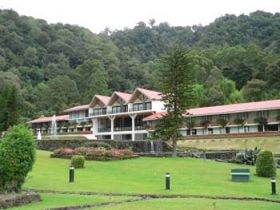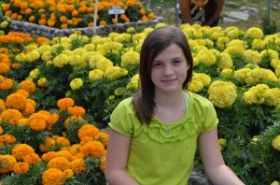What is the culture of Volcan and Cerro Punta, Chiriqui Province, Panama?
Nelson Vega
 The thing that defines Volcan and Cerro Punta is their weather because it is different from the rest of the country since they are high up in the mountains and the climate it really cool all year. The temperature in Volcan and Cerro Punta is around 50 to 59 degrees Fahrenheit at night and it can go up to 73 to 74 degrees during the day.
The thing that defines Volcan and Cerro Punta is their weather because it is different from the rest of the country since they are high up in the mountains and the climate it really cool all year. The temperature in Volcan and Cerro Punta is around 50 to 59 degrees Fahrenheit at night and it can go up to 73 to 74 degrees during the day. The weather has a big influence on how people live and even their houses are different. The houses in Volcan and...
 The thing that defines Volcan and Cerro Punta is their weather because it is different from the rest of the country since they are high up in the mountains and the climate it really cool all year. The temperature in Volcan and Cerro Punta is around 50 to 59 degrees Fahrenheit at night and it can go up to 73 to 74 degrees during the day.
The thing that defines Volcan and Cerro Punta is their weather because it is different from the rest of the country since they are high up in the mountains and the climate it really cool all year. The temperature in Volcan and Cerro Punta is around 50 to 59 degrees Fahrenheit at night and it can go up to 73 to 74 degrees during the day. The weather has a big influence on how people live and even their houses are different. The houses in Volcan and Cerro Punta are more of a mountain type of architecture and most people there depend on agriculture, although tourism is another source of income.
Posted October 21, 2014
John Gilbert - PanamaKeys
 The culture of Volcán is a mix between the typical Panamanian culture that you’ll see throughout the country and the Ngäbe culture. You see a heavy influx of the Ngäbe here in Volcán as opposed to other places in Panama because they live in close proximity to, and work a lot in Volcán.
The culture of Volcán is a mix between the typical Panamanian culture that you’ll see throughout the country and the Ngäbe culture. You see a heavy influx of the Ngäbe here in Volcán as opposed to other places in Panama because they live in close proximity to, and work a lot in Volcán. Volcán is still an agricultural community, so a lot of the Indians come down from the mountains and do a lot of work here in...
 The culture of Volcán is a mix between the typical Panamanian culture that you’ll see throughout the country and the Ngäbe culture. You see a heavy influx of the Ngäbe here in Volcán as opposed to other places in Panama because they live in close proximity to, and work a lot in Volcán.
The culture of Volcán is a mix between the typical Panamanian culture that you’ll see throughout the country and the Ngäbe culture. You see a heavy influx of the Ngäbe here in Volcán as opposed to other places in Panama because they live in close proximity to, and work a lot in Volcán. Volcán is still an agricultural community, so a lot of the Indians come down from the mountains and do a lot of work here in Volcán, and they mix with the community. You’re just as likely to see the Ngäbe with their family in traditional Ngäbe dress as you are to see a family of Panamanians out who have come up the mountain from the city.
There are expats here in Volcán who own coffee farms, restaurants, and transportation and distribution businesses that move the vegetables from the mountains to the city- the types of businesses that thrive here in Volcán.
Expats work in a symbiotic fashion with the culture here in Volcán because most of the expat businesses here in Volcán tend to provide services. You either provide goods by growing the produce on your own farm, or you provide the service to the community here. There’s nothing that feels artificial about the expats being here in Volcán, about the expats having to dialog in Spanish with the Spanish-speaking culture. At this point into my expat life, it feels completely normal. I don’t even think about being in a foreign country. I just think of this as home.
(John Gilbert's daughter among the flowers grown near their home in Volcan, Panama, pictured.)
Posted February 22, 2017


